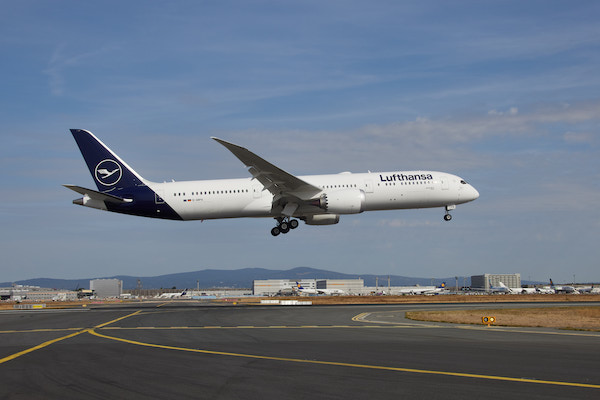The Lufthansa strike, commencing tonight, is anticipated to severely impact the airline’s operations. With a staggering 80% of flights potentially grounded, travellers face significant disruptions.
Passengers are urged to confirm their flight status before heading to the airport. The strike highlights ongoing tensions between Lufthansa and its ground staff, who are demanding better wages and benefits.
The latest strike by Lufthansa’s ground staff is set to cause widespread disruption, affecting nearly 80% of scheduled flights. The strike, lasting 35 hours, impacts major hubs such as Frankfurt and Munich, as well as other key airports across Germany, including Hamburg and Berlin.
The airline estimates that only 10% to 20% of its flight schedule will operate during the strike, particularly on February 20. This comes in the wake of a similar strike earlier in the month that led to the cancellation of 900 flights, inconveniencing around 100,000 passengers.
The Verdi union has organised the strike, demanding a significant wage increase for 25,000 workers. They seek a 12.5% rise in salaries or a minimum of €500 per month over the next year, alongside a one-time payment of €3,000 to counter inflationary pressures.
Verdi’s demands highlight the ongoing struggle for better compensation for ground staff. The union’s stance reflects broader labour challenges within the aviation industry, as workers push back against stagnant wage growth amid rising costs of living.
Lufthansa’s executive board member, Michael Niggemann, expressed disappointment over the strike. He noted that the airline had made a substantial offer, which was nevertheless rejected by the union.
“We regret the inconvenience for our guests,” Lufthansa stated, urging passengers to verify their flights through email or the Lufthansa app. The airline also advised against visiting airports unless flights were confirmed as operational.
Passengers affected by flight cancellations have been notified via email or through the Lufthansa app. The company advises passengers not to approach rebooking counters at airports, due to staffing shortages caused by the strike.
Previous strikes have shown that such disruptions cause significant inconvenience, with many passengers facing the uncertainty of last-minute travel arrangements.
This is not the first instance of industrial action affecting Lufthansa. Over recent years, the airline has faced multiple strikes, all rooted in disputes over pay and working conditions.
These recurring strikes have put enormous pressure on the airline’s operations and reputation, forcing management to navigate complex negotiations while maintaining service levels.
The negotiations between Lufthansa and the Verdi union are complex, with both parties remaining steadfast in their positions. Lufthansa’s attempt at presenting a comprehensive offer has yet to resolve the standoff.
Industrial actions like these underscore the critical importance of effective negotiation strategies and the need for solutions that address the concerns of the workforce while ensuring business continuity.
The ongoing dispute poses significant implications for Lufthansa’s future operations. The carrier must address these labour issues promptly to prevent further disruptions.
Investor confidence and customer loyalty are at risk as the company grapples with balancing employee demands and maintaining a competitive edge in the aviation sector.
The Lufthansa strike underscores a crucial crossroads for the airline, as it navigates the complex landscape of labour relations. Addressing the demands of its workforce while ensuring operational continuity remains a significant challenge.

